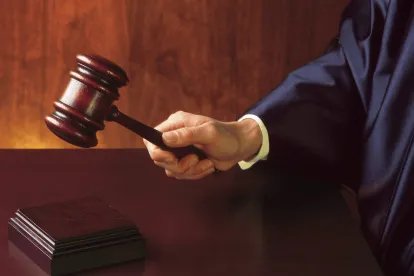On April 9, 2021, the Massachusetts Supreme Judicial Court (SJC) ruled that an employee may be liable to his or her employer under the Commonwealth’s unfair and deceptive trade practices statute—which authorizes an award of double or treble damages for willful violations, as well as costs and attorneys’ fees—for actions that the employee engaged in during the course of his or her employment. In Governo Law Firm LLC v. Bergeron et al., No. SJC-12948, the Commonwealth’s highest court reversed a trial court’s determination that a jury could not consider actions that the defendant-employees had undertaken during their employment with the plaintiff in evaluating whether they had committed unfair or deceptive trade practices in violation of the statute by misappropriating their former employer’s research and administrative files. The decision provides employers with a significant additional deterrent to, and remedy for, their employees’ theft of proprietary information and materials.
The Employee Conduct at Issue in Governo
The defendants in Governo were six attorneys and their law firm, CMBG3 Law LLC. The attorneys had been nonequity employees of the plaintiff, Governo Law Firm LLC (GLF), until November 20, 2016. Before that date, several of the attorneys had secretly downloaded onto flash drives the contents of GLF’s research library, which contained “a treasure trove of materials amassed from GLF’s own matters as well as other sources, that gave it a competitive edge in attracting and providing legal services” to clients in GLF’s specialty field (asbestos litigation). The attorneys also downloaded GLF databases that organized and made sortable resources from the research library, as well as administrative files containing GLF’s office procedures manual, client lists, employee handbook, and marketing materials.
After downloading the materials, the attorneys removed them from GLF’s offices and uploaded them to a laptop computer that they had purchased for their new law firm, CMBG3 Law. They then offered to buy GLF from its sole owner, David Governo, and gave him until 5:00 p.m. that day to accept the offer. When Governo rejected the offer, the attorneys resigned and, a few days later, began operating their new firm. In the course of doing so, the attorneys accessed “tens of thousands” of GLF files on the CMBG3 laptop to assist in their representation of clients.
Thereafter, GLF filed a lawsuit against CMBG3 and the six attorneys in which it asserted claims for conversion, breach of the duty of loyalty, conspiracy, and violation of the unfair and deceptive trade practices statute, commonly referred to as “Chapter 93A.”
Chapter 93A, Employee Misconduct, and the Trial Court’s Ruling
Massachusetts General Laws Chapter 93A, Section 11, provides that any person who (a) engages in trade or commerce and (b) loses money or property due to the use “by another person who engages in any trade or commerce of … an unfair or deceptive act or practice” may bring an action for damages against that person. Accordingly, in a 2008 decision, the SJC noted that in order for Chapter 93A to apply to a dispute, there must be “a commercial transaction between a person engaged in trade or commerce and another person engaged in trade or commerce, such that they were acting in a ‘business context.’”
Courts in Massachusetts have long held that Chapter 93A does not apply to disputes between members of the same enterprise—including, for example, partners in a business venture and shareholders in a close corporation—on the theory that such disputes do not arise in the context of “a commercial marketplace transaction.” For the same reason, courts have held that Chapter 93A does not apply to disputes between employers and employees that arise out of the employment relationship.
Relying on these cases and principles, the trial court in Governo instructed the jury that in evaluating whether the defendants had violated Chapter 93A, it could not consider any conduct that the defendants had engaged in while employed by GLF. The court explained that “by law an employee and employer are [not] in trade or commerce with each other for purposes of [Chapter 93A]” and that the statute therefore “does not apply to anything a defendant did toward the Governo Firm while they were still employed there.” After receiving that instruction, the jury found that although the defendants were liable to GLF for conversion, breach of the duty of loyalty, and conspiracy, they had not committed unfair or deceptive trade practices in violation of Chapter 93A. GLF filed an appeal from that judgment, and the SJC granted its application for direct appellate review.
The SJC Reverses the Trial Court
The SJC began its analysis of the trial court’s Chapter 93A instruction by observing that the rationale for “carving out certain employment disputes from the otherwise broad reach” of Chapter 93A is that such disputes concern “purely … internal matter[s].” According to the SJC, however, when “an employee misappropriates his or her employer’s proprietary materials during the course of employment” and then uses those materials “in the marketplace,” the employee’s conduct “is not purely an internal matter.” Instead, such conduct “comprises a marketplace transaction that may give rise to a claim” under Chapter 93A. Thus, the SJC held, the fact that an individual was an employee of the entity whose information he or she misappropriated “does not shield [the employee] from liability” under Chapter 93A “where [the employee] subsequently used the ill-gotten materials to compete with [his or her] now-former employer.” Since the trial judge’s instruction had barred the jury from considering anything that the six attorneys had done while they were employed by GLF—which was when several of them had actually stolen the materials at issue—in evaluating GLF’s Chapter 93A claim, the SJC held that the instruction had been erroneous and that a new trial on the Chapter 93A claim was required.
Considerations for Employers
The facts of the Governo case, in which employees entrusted with their employer’s competitively valuable and proprietary materials steal them and then use the materials to establish a competitive business, represent a nightmare scenario for employers. The law provides employers with various mechanisms for protecting their proprietary information and for imposing liability on employees who take it, including actions for conversion, breach of fiduciary duty, or breach of contract (if the employer had the foresight to require the employee to sign a confidentiality agreement). Unlike Chapter 93A, however, none of these protections automatically entitles the employer to recover the attorneys’ fees that it incurs in pursuing an action or allows the employer to recover double or treble damages from an employee. Thus, by holding that an employee who takes materials from his or her employer and then uses those materials to compete with the employer can be held liable under Chapter 93A, the SJC has provided employers with a valuable tool for deterring and remedying the nightmare scenario that the plaintiff-employer was faced with in Governo.




 />i
/>i
